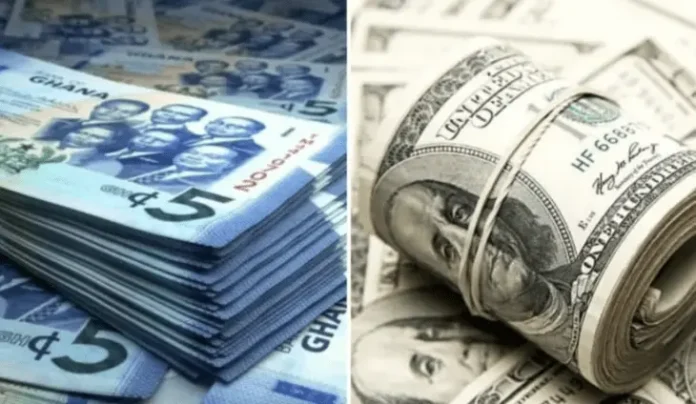Currency volatility concerns are expected to feature prominently when the Bank of Ghana’s Monetary Policy Committee convenes on September 15, as the cedi faces pressure despite being 2025’s best-performing currency globally.
The Ghana cedi has appreciated approximately 43 percent against the US dollar in 2025, ranking as Africa’s best-performing currency and globally outpacing all other currencies. However, as of June 2025, the exchange rate remained around GH₵10 per US dollar, indicating continued monitoring needs.
Recent data from the Bank of Ghana shows mixed currency performance throughout 2025. The cedi depreciated 5.3 percent against the dollar in the first quarter of 2025, with losses particularly pronounced in January and February, before recovering strongly in subsequent months.
Market analysts anticipate the MPC will address currency stability measures as Ghana maintains its International Monetary Fund program commitments. The central bank’s approach to managing exchange rate fluctuations remains crucial for maintaining investor confidence and economic stability.
Recent market dynamics show disparities between interbank rates around GH¢10.30 and forex bureau rates consistently between GH¢11 and GH¢12, indicating ongoing market pressures that policymakers must address.
The currency’s exceptional performance this year contrasts sharply with previous periods of significant depreciation. Ghana’s successful debt restructuring and IMF program implementation have contributed to renewed investor confidence in the cedi’s stability.
The fiscal deficit for 2025 is projected at 3.1 percent of GDP, with a primary surplus target of 1.5 percent, contingent on government efforts to reverse 2024 fiscal challenges, according to World Bank projections. These fiscal targets directly impact currency stability expectations.
Economic analysts suggest the MPC will likely maintain its current policy stance while providing guidance on sustaining the cedi’s remarkable turnaround. The committee’s September meeting comes at a critical juncture as Ghana seeks to maintain momentum from its debt restructuring success.
Previous forecasts suggested the Bank of Ghana might cut its benchmark policy rate by 200 basis points to 27.00 percent by end-2024, after maintaining it at 29.00 percent earlier in the year. Current policy directions remain closely watched by market participants.
The banking sector’s stability and foreign exchange reserves position will likely influence MPC deliberations. Ghana’s successful return to international capital markets following debt restructuring provides additional policy flexibility.
Import-dependent businesses continue monitoring exchange rate developments, particularly as seasonal demand patterns typically influence currency markets during the final quarter. However, the cedi’s strong year-to-date performance provides a buffer against traditional seasonal pressures.
Foreign investment flows and remittances have supported the cedi’s recovery, with improved investor sentiment following Ghana’s successful debt restructuring agreement with international creditors earlier this year.
The central bank’s communication strategy regarding future currency policy direction will be scrutinized by financial markets seeking clarity on sustaining current stability levels. Clear policy guidance could further enhance investor confidence in Ghana’s economic recovery trajectory.
Trade balance improvements and increased export revenues have contributed to foreign currency availability, supporting the cedi’s exceptional performance compared to other African currencies facing depreciation pressures.
With inflation targeting remaining a key policy priority, the MPC must balance exchange rate stability considerations with broader monetary policy objectives. The committee’s decisions will signal Ghana’s continued commitment to macroeconomic stability under its IMF program.
Source: newsghana.com.gh











